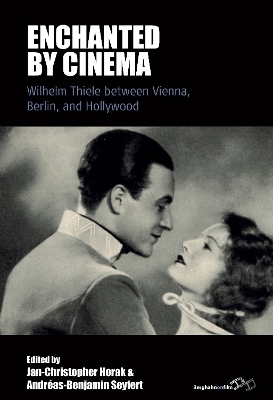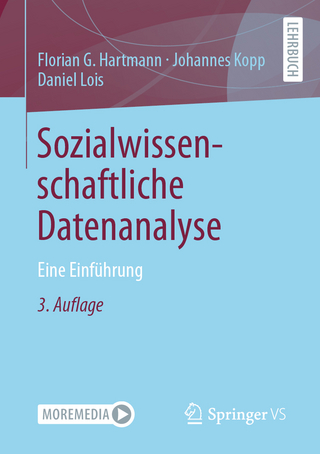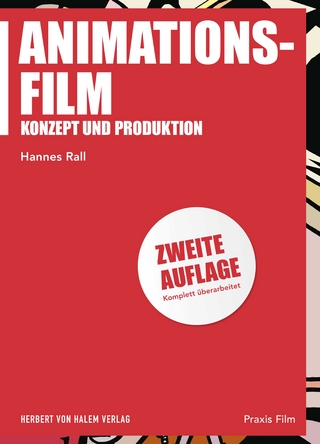
Enchanted by Cinema
Berghahn Books (Verlag)
978-1-80539-536-2 (ISBN)
Jan-Christopher Horak is former Director of UCLA Film & Television Archive. Previously he was Director at Munich Filmmuseum, and Curator, George Eastman Museum. He has had professorships in Rochester, Munich, Salzburg, UCLA, and Miami, and presently is teaching at Chapman. He has published more than three hundred articles and reviews in English, German, French, Italian, Dutch, Spanish, Hungarian, Czech, Polish, Swedish, Japanese, and Hebrew publications.
List of Illustrations
Acknowledgements
Foreword
David Thiele and Linda Thiele
Introduction
Jan-Christopher Horak and Andréas-Benjamin Seyfert
Part I: Wilhelm Thiele’s Early Career
Chapter 1. Towards Thiele: A Director in the Making
Philipp Stiasny
Chapter 2. Across Studio Borders: From Hurra, ich lebe (1928) to The Ghost Comes Home (1940)
Andréas-Benjamin Seyfert
Chapter 3. Modeling Female Agency: Wilhelm Thiele’s Adieu Macotte (1929)
Heike Klapdor
Part II: Thiele in Europe’s Sound Film Babel, 1929–1933
Chapter 4. From Liebeswalzer (1930) to Die Drei von der Tankstelle (1930): Thiele and the Formation of the UFA Sound Film Operetta
Michael Wedel
Chapter 5. “Why Settle So Low?”: Fantasies of Female Self-Fulfillment in Wilhelm Thiele’s Die Privatsekretärin (1931)
Christian Rogowski
Chapter 6. “Greater Success Than Ever Before in Your New Workshop”: Wilhelm Thiele in Britain
Geoff Brown
Chapter 7. “Fate Goes Like This, and Everything’s Gone”: Großfürstin Alexandra (1933), Exile, and Renunciation
Anjeana K. Hans
Part III: Thiele in Hollywood, 1935–1946
Chapter 8. Embracing the Off-White: Race and Sex in William Thiele’s Jungle Princess (1936)
Valerie Weinstein
Chapter 9. Times of Adjustment: Celebrated Innocence and Mass Production in Beg, Borrow or Steal (1937), Bridal Suite (1939), and Bad Little Angel (1940)
Imme Klages
Chapter 10. Me Thiele, You Tarzan
Marianna Torgovnick
Chapter 11. “I’m a Bit Gloomy This Evening.” Forgotten Noir: The Madonna’s Secret (1946)
Christian Cargnelli
Part IV: American Television and Post-War Germany, 1949–1960
Chapter 12. Thiele at Apex
Jan-Christopher Horak
Chapter 13. The Misfits Make America: Wilhelm Thiele’s The Lone Ranger Episodes
A. Dana Weber
Chapter 14. William Thiele’s Last Hurrah: Der letzte Fußgänger (1960) and Sabine und die 100 Männer (1960)
Jan-Christopher Horak
Conclusion
Jan-Christopher Horak and Andréas-Benjamin Seyfert
Coda
Filmography
Hans-Michael Bock
Interview with W. and B. Thiele
Jan-Christopher Horak
In His Brother’s Shadow: The Cinema of Eugen Thiele
Armin Loacker
| Erscheinungsdatum | 05.04.2024 |
|---|---|
| Reihe/Serie | Film Europa |
| Verlagsort | Oxford |
| Sprache | englisch |
| Maße | 152 x 229 mm |
| Themenwelt | Kunst / Musik / Theater ► Film / TV |
| Sozialwissenschaften ► Kommunikation / Medien ► Medienwissenschaft | |
| ISBN-10 | 1-80539-536-X / 180539536X |
| ISBN-13 | 978-1-80539-536-2 / 9781805395362 |
| Zustand | Neuware |
| Haben Sie eine Frage zum Produkt? |
aus dem Bereich


